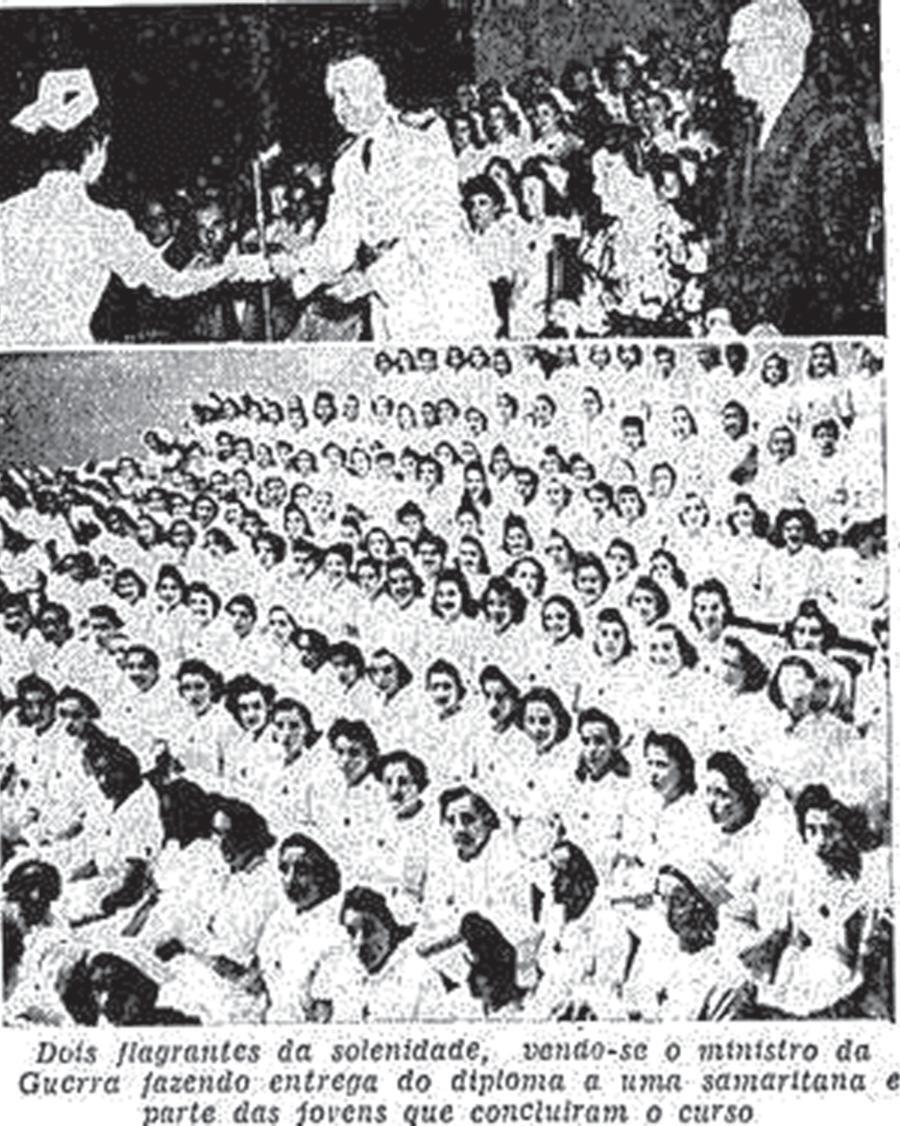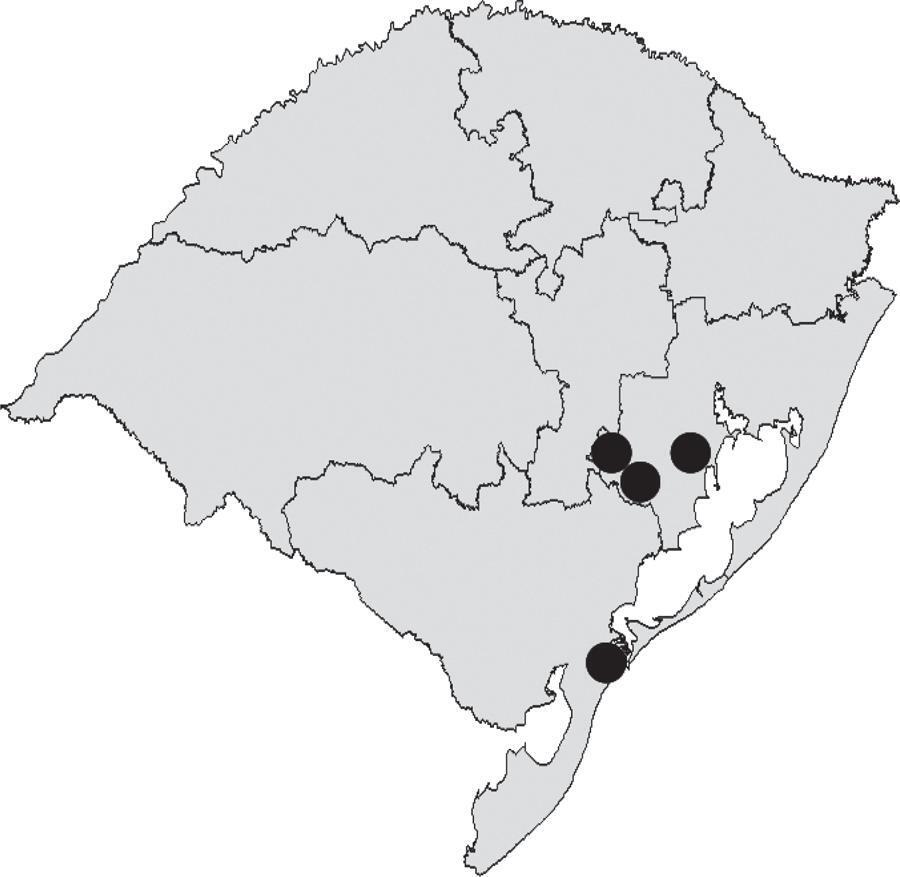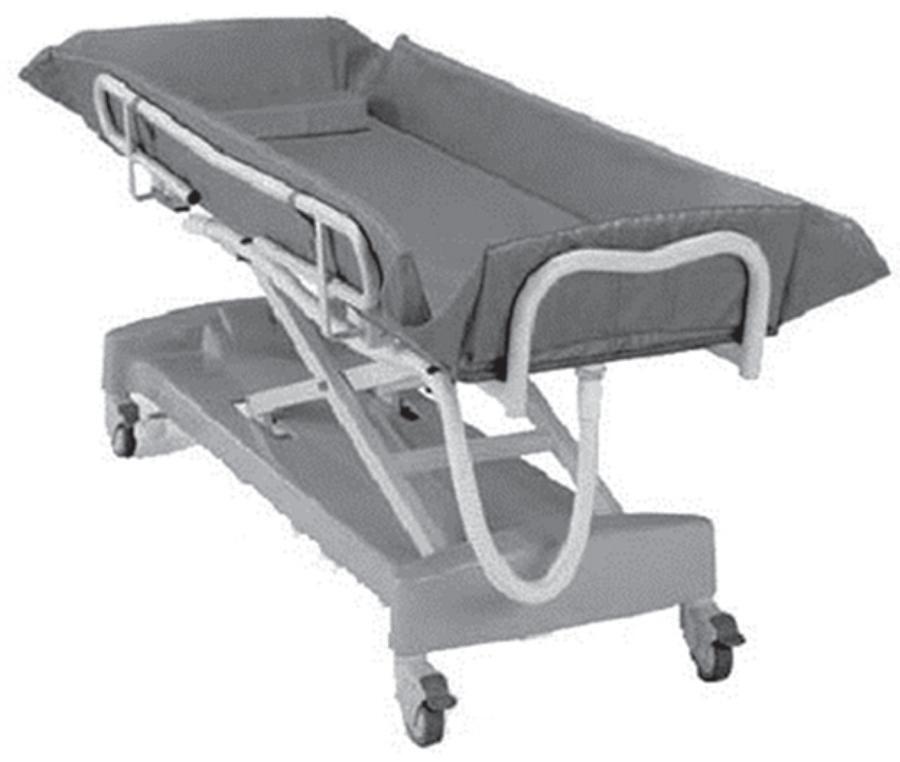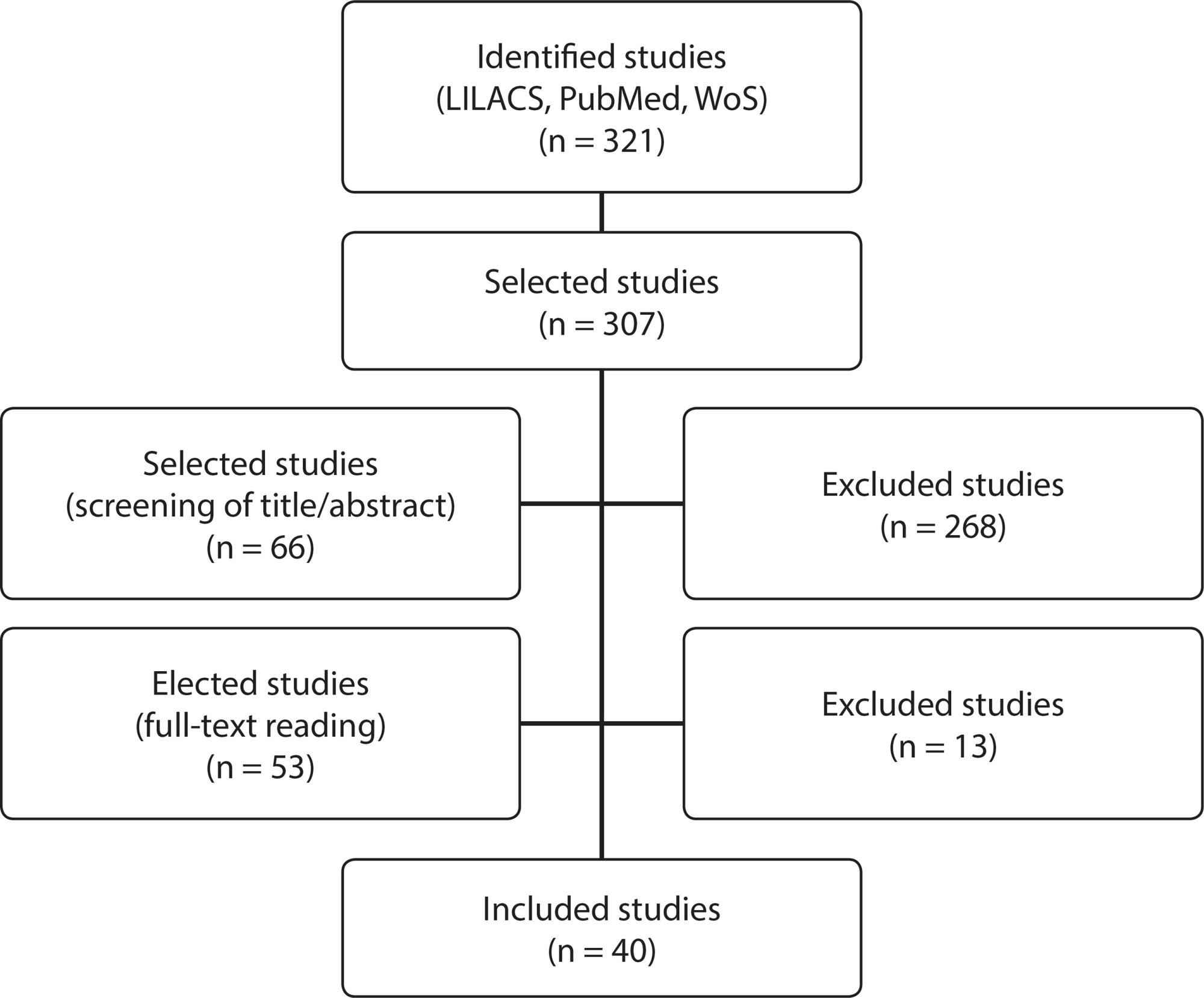-
REVIEW01-01-2017
Patient with stroke: hospital discharge planning, functionality and quality of life
Revista Brasileira de Enfermagem. 2017;70(2):415-423
Abstract
REVIEWPatient with stroke: hospital discharge planning, functionality and quality of life
Revista Brasileira de Enfermagem. 2017;70(2):415-423
DOI 10.1590/0034-7167-2016-0166
Views0See moreABSTRACT
Objective:
analyze the strategies of hospital discharge planning for these patients, increasing the knowledge related to hospitalhome transition, discharge planning processes and the main impact on the quality of life and functionality.
Method:
integrative literature review using the PICOD criteria, with database research.
Results:
19 articles were obtained, using several approaches and contexts. For quality of life, the factors related to the patient satisfaction with care and the psychoemotional aspects linked with functionality are the most significant.
Conclusion:
during the hospitalization period, a careful hospital discharge planning and comprehensive care to patients and caregivers – in particular the functional and psychoemotional aspects – tend to have an impact on the quality of life of patients.

-
RESEARCH01-01-2017
Nursing throughout war times: political propaganda and professional valorization (1942-1945)
Revista Brasileira de Enfermagem. 2017;70(2):407-414
Abstract
RESEARCHNursing throughout war times: political propaganda and professional valorization (1942-1945)
Revista Brasileira de Enfermagem. 2017;70(2):407-414
DOI 10.1590/0034-7167-2016-0440
Views0See moreABSTRACT
Objective:
to discuss the symbolic effects of the publication on written press of institutional rites related to the courses promoted by the Brazilian Federal District’s Schools of Nursing during the Second World War.
Method:
exploratory and documentary study, whose sources were treated by historical method.
Results:
one noticed, in the news reports analyzed, that the Brazilian Estado Novo has used nurses images to divulge within the society the woman’s acting altruistic model in service to the country, through the systematic diffusion by the press of her honorable acting during the war, what assured the amplification of the visibility and acknowledgment of the Nursing profession in that context.
Conclusion:
the diffusion by press of emergency nurses graduations magnified their apparition in public spaces, occasion on which the institutional rite was strategically used to transmit to the society the urgency of the new profession, in order to support the political causes in vigor in the country.

-
RESEARCH01-01-2017
Conformity of nurse prescribing to care needs: nurses’ understanding
Revista Brasileira de Enfermagem. 2017;70(2):400-406
Abstract
RESEARCHConformity of nurse prescribing to care needs: nurses’ understanding
Revista Brasileira de Enfermagem. 2017;70(2):400-406
DOI 10.1590/0034-7167-2016-0107
Views0See moreABSTRACT
Objective:
investigate the understanding of nurses on nurse prescribing conformity to the care needs of hospitalized patients and factors associated with that conformity.
Method:
a descriptive study, with a quantitative approach, was conducted at 20 in-patient units of a teaching hospital in the state of São Paulo. The participants (N=139) answered a semi-structured questionnaire.
Results:
For 43 (30.9%) nurses, nurse prescribing is always in line with patients’ care needs. The fields of body care and elimination, skin and mucosa care and investigation and monitoring were the most frequently addressed.
Conclusion:
in the perception of most nurses, nurse prescribing does not conform with patients’ health heeds. The establishment of strategies to improve prescribing quality is recommended, as well as the development of permanent qualification programs and the systematic use of instruments for assessment of patients’ care demands regarding nursing.
-
RESEARCH01-01-2017
Religious and spiritual coping in people living with HIV/Aids
Revista Brasileira de Enfermagem. 2017;70(2):392-399
Abstract
RESEARCHReligious and spiritual coping in people living with HIV/Aids
Revista Brasileira de Enfermagem. 2017;70(2):392-399
DOI 10.1590/0034-7167-2015-0170
Views0See moreABSTRACT
Objective:
evaluate the religiosity and the religious/spiritual coping of people living with HIV/Aids.
Method:
descriptive, cross-sectional study with quantitative approach, conducted in a reference HIV/Aids outpatient clinic in a university hospital of Recife-PE, Brazil, from June to November 2015. At total of 52 people living with HIV/Aids (PLWHA) participated in the research, which employed own questionnaire, the Duke University Religion Index (DUREL), and the Religious/Spiritual Coping Scale (RCOPE).
Results:
the sample presented high indices of organizational religiosity (4.23±1.66), non-organizational religiosity (4.63±1.50), and intrinsic religiosity (13.13±2.84). Positive RCOPE was used in high mean scores (3.66±0.88), and negative RCOPE had low use (2.12 ± 0.74). In total, use of RCOPE was high (3.77±0.74), having predominated the positive RCOPE (NegRCOPE/PosRCOPE ratio=0.65±0.46).
Conclusion:
it is evident the importance of encouraging religious activity and RCOPE strategies, seen in the past as inappropriate interventions in clinical practice.
-
RESEARCH01-01-2017
Satisfaction and dissatisfaction in the work of recyclable solid waste segregators: convergent-care research
Revista Brasileira de Enfermagem. 2017;70(2):384-391
Abstract
RESEARCHSatisfaction and dissatisfaction in the work of recyclable solid waste segregators: convergent-care research
Revista Brasileira de Enfermagem. 2017;70(2):384-391
DOI 10.1590/0034-7167-2016-0325
Views0See moreABSTRACT
Objectives:
describe elements that promote satisfaction and dissatisfaction in the work of recyclable solid waste segregators and conduct a nursing action focused on these elements.
Method:
qualitative research, convergent-care, conducted with members of the cooperative. Data production occurred during 2015 through participation observation, semi-structured interviews, and a convergence group. Analysis comprised the phases Apprehension, Synthesis, Theorization, and Transference.
Results:
four categories emerged. They showed satisfaction and dissatisfaction related to identification with tasks and work content, material and personal gains obtained from solid waste segregation, prejudice, lack of appreciation, and difficulties in interpersonal relationships. This last item, due to its importance, received a nursing action.
Conclusion:
the study contributed to the advancement of knowledge and the association of possibilities between the research performance and nursing care for workers.
-
RESEARCH01-01-2017
The game as strategy for approach to sexuality with adolescents: theoretical-methodological reflections
Revista Brasileira de Enfermagem. 2017;70(2):376-383
Abstract
RESEARCHThe game as strategy for approach to sexuality with adolescents: theoretical-methodological reflections
Revista Brasileira de Enfermagem. 2017;70(2):376-383
DOI 10.1590/0034-7167-2016-0043
Views0See moreABSTRACT
Objective:
To describe the Papo Reto [Straight Talk] game and reflect on its theoretical-methodological basis.
Method:
Analytical study on the process of elaboration of the Papo Reto online game, destined to adolescents aged 15-18 years, with access to the Game between 2014 and 2015.
Results:
the interactions of 60 adolescents from Belo Horizonte and São Paulo constituted examples of the potentialities of the Game to favor the approach to sexuality with adolescents through simulation of reality, invention and interaction. Based on those potentialities, four thinking categories were discussed: the game as pedagogic device; the game as simulation of realities; the game as device for inventive learning; and the game empowering the interaction.
Conclusion:
By permitting that the adolescents take risks on new ways, the Game allows them to become creative and active in the production of senses, in the creation of their discourses and in the ways of thinking, feeling and acting in the sexuality field.
-
RESEARCH01-01-2017
Tuberculosis among prison staff in Rio Grande do Sul
Revista Brasileira de Enfermagem. 2017;70(2):370-375
Abstract
RESEARCHTuberculosis among prison staff in Rio Grande do Sul
Revista Brasileira de Enfermagem. 2017;70(2):370-375
DOI 10.1590/0034-7167-2016-0012
Views0See moreABSTRACT
Objective:
to evaluate the risk of infection and illness caused by Mycobacterium tuberculosis among health care and security staff in prisons in two regions of Rio Grande do Sul (RS).
Method:
cross-sectional study involving prison staff. An interview and sputum smear microscopy and culture were performed. Latent infection was evaluated according to the result of the tuberculin test (TT), self-referred.
Results:
among staff who had a TT, 10 (83.3%) in the central region and 2 (16.7%) in the southern region were considered reactors. Length of employment among prison officers who reacted to TT was 15.3 years, and among health care workers, 4.1 years (p = 0.01). No cases of active tuberculosis (TB) were identified.
Conclusion:
prevalence of latent TB was 27.9%. Length of employment between different professional categories and their working regions was considered a risk factor for latent TB.

-
RESEARCH01-01-2017
Portable bathtub: technology for bed bath in bedridden patients
Revista Brasileira de Enfermagem. 2017;70(2):364-369
Abstract
RESEARCHPortable bathtub: technology for bed bath in bedridden patients
Revista Brasileira de Enfermagem. 2017;70(2):364-369
DOI 10.1590/0034-7167-2016-0178
Views0See moreABSTRACT
Objective:
determine the benefits of the Portable Bathtub as technology for bed bath in bedridden patients.
Method:
qualitative research of exploratory-descriptive character, whose data were collected by means of 30 interviews with patients, family members and professionals directly involved in bed bath, carried out with Portable Bathtub, in bedridden patients of a medical clinic, from July to December 2015.
Results:
from the data encoded by thematic content analysis resulted two categories: Portable Bathtub: from morphine to the patient’s rekindled eyes; From mechanized practice to unique, transforming care.
Conclusion:
we concluded that the Portable Bathtub constitutes enhancing technology, as it enables clinical improvement of the patient’s general condition and transcends traditional mechanized practices by the reach of advanced nursing care practices.

-
REVIEW08-05-2020
Communication of bad news in pediatrics: integrative review
Revista Brasileira de Enfermagem. 2020;73:e20190059
Abstract
REVIEWCommunication of bad news in pediatrics: integrative review
Revista Brasileira de Enfermagem. 2020;73:e20190059
DOI 10.1590/0034-7167-2019-0059
Views1See moreABSTRACT
Objectives:
to identify the scientific evidence of the elements of communication in the process of communicating bad news in pediatrics.
Methods:
integrative review searched in the LILACS, PubMed and WoS databases. Primary studies in Portuguese, Spanish or English were included.
Results:
the evidence from the 40 studies were organized according to the elements of communication: sender (family and/or professional), receiver (family and/or child), message (bad or difficult news about diagnosis/prognosis; empathetically, honestly, objective, hopeful and available), channel (materials, quality, quantity and pace), context and effects (social and emotional changes), noise (feelings and language) and failures (silencing and misleading information).
Conclusions:
there is a need to prepare the institution and team, as well as the family and the child, in order to promote co-responsibility in this process, to minimize suffering and communication noise and to avoid failures, recognizing the child’s right to know their condition.

-
03-15-2021
Advanced Practice Nursing in Latin America and the Caribbean: seeking its implementation
Revista Brasileira de Enfermagem. 2021;74:e74suppl601
Abstract
Advanced Practice Nursing in Latin America and the Caribbean: seeking its implementation
Revista Brasileira de Enfermagem. 2021;74:e74suppl601
DOI 10.1590/0034-7167.202174suppl601
Views1Healthcare organizations are increasingly complex and specialized, seeking to optimize their quality and safety standards, and be able to meet the growing needs of their users. To face this reality, health professionals need to adapt to respond in time to the demands of the health context. In turn, the World Health Organization (WHO), through the […]See more -
ORIGINAL ARTICLE10-21-2019
Child and adolescent violence: oral story of women who attempted suicide
Revista Brasileira de Enfermagem. 2019;72(6):1450-1456
Abstract
ORIGINAL ARTICLEChild and adolescent violence: oral story of women who attempted suicide
Revista Brasileira de Enfermagem. 2019;72(6):1450-1456
DOI 10.1590/0034-7167-2017-0814
Views0See moreABSTRACT
Objective:
To unveil expressions of intrafamily violence experienced in childhood and/or adolescence by women who attempted suicide.
Method:
This is a study with a qualitative approach based on Oral Story. Participants were ten women with a history of suicide attempt, who experienced intrafamily violence in childhood and/or adolescence. The research was carried out at the Center for the Study and Prevention of Suicide, linked to a Toxicological Information Center in the city of Salvador, Bahia, Brazil.
Results:
From the orality of women, the study allowed the emergence of the following representative categories of intrafamily abuse experienced in childhood and/or adolescence: psychological violence, rejection, neglect, physical violence and sexual violence.
Final considerations:
The study alerts to intrafamily violence as an aggravation related to suicidal behavior, offering elements that help in the identification of their expressions, which will raise awareness to suicidal behavior and consequently suicide prevention.
-
ORIGINAL ARTICLE03-30-2020
Meanings assigned by families about children’s chronic disease diagnosis
Revista Brasileira de Enfermagem. 2020;73(2):e20180742
Abstract
ORIGINAL ARTICLEMeanings assigned by families about children’s chronic disease diagnosis
Revista Brasileira de Enfermagem. 2020;73(2):e20180742
DOI 10.1590/0034-7167-2018-0742
Views0See moreABSTRACT
Objectives:
to understand the meanings assigned by family caregivers about children’s chronic disease diagnosis.
Methods:
qualitative study, which used as theoretical framework the Symbolic Interactionism, and methodological, the Grounded Theory. It was held in a pediatric unit in Southern Brazil, in 2016, through interviews submitted to open and axial analysis, with the participation of 20 family caregivers of hospitalized children.
Results:
relatives, interacting with the nursing/health staff, perceive children’s disease at birth. They are diagnosed with chronic disease by the physician and deny it. Subsequently, they accept and seek information on care.
Conclusions:
the results pointed out the stages that relatives experience by assigning meanings to about children’s chronic disease diagnosis. These meanings provide subsidies for nurses’ actions, which need to be aware of children’s and family’s needs in order to offer comprehensive and humanized care.

-
REFLECTION09-29-2022
Health care of deaf persons during coronavirus pandemics
Revista Brasileira de Enfermagem. 2022;75:e20201036
Abstract
REFLECTIONHealth care of deaf persons during coronavirus pandemics
Revista Brasileira de Enfermagem. 2022;75:e20201036
DOI 10.1590/0034-7167-2020-1036
Views0See moreABSTRACT
Objective:
To reflect about the barriers experienced by the deaf population during the COVID-19 pandemic, the proposals to overcome communication barriers in health care and the role of public policies in effecting the social inclusion of deaf people.
Methods:
Reflection based on studies on health care for deaf people, the COVID-19 pandemic and public accessibility policies.
Results:
The global crisis of COVID-19 has deepened pre-existing inequalities in the world, in addition to highlighting the vulnerability of people with disabilities, including deaf. Government, institutional and social initiatives to mitigate difficulties in communicating to deaf people have been made, but they are still insufficient to guarantee protection for them in this pandemic and full inclusion in health care.
Final considerations:
Social inclusion, supported by law, and the linguistic accessibility of deaf people still need to generate broad and concrete actions so that deaf people can enjoy their rights as citizens.
-
ORIGINAL ARTICLE09-18-2020
Nursing recommendations for facing dissemination of COVID-19 in Brazilian Nursing Homes
Revista Brasileira de Enfermagem. 2020;73:e20200260
Abstract
ORIGINAL ARTICLENursing recommendations for facing dissemination of COVID-19 in Brazilian Nursing Homes
Revista Brasileira de Enfermagem. 2020;73:e20200260
DOI 10.1590/0034-7167-2020-0260
Views0See moreABSTRACT
Objective:
to develop a protocol of recommendations for facing dissemination of COVID-19 in Brazilian Nursing Homes.
Method:
a study of experts’ recommendations using a structured form applied through the Delphi Technique, obtaining 100% agreement among professionals after four rounds of analysis. The population comprised six nurses members of the Scientific Department of Gerontological Nursing of the Brazilian Association of Nursing (Associação Brasileira de Enfermagem)
Results:
the protocol was structured in a nucleus of nursing interventions to face the spread of COVID-19 in Nursing Homes, consisting of 8 actions.
Final considerations:
the protocol can help nurse managers to organize assistance to face the pandemic, which can be adaptable to each reality, making training nurses and health teams easier.
-
ORIGINAL ARTICLE09-16-2019
Knowledge of nursing student on the prevention of sexually transmitted infections
Revista Brasileira de Enfermagem. 2019;72(5):1145-1152
Abstract
ORIGINAL ARTICLEKnowledge of nursing student on the prevention of sexually transmitted infections
Revista Brasileira de Enfermagem. 2019;72(5):1145-1152
DOI 10.1590/0034-7167-2017-0801
Views0See moreABSTRACT
Objective:
To identify the knowledge and self-care actions taken by nursing undergraduate students of a Federal University of the South of Brazil, against Sexually Transmitted Infections.
Method:
Exploratory qualitative study, conducted 40 interviews with undergraduate students at the beginning and end of the course. The analysis was thematic, resulting in three categories.
Results:
Knowledge about the subject is a decisive factor for self-care, and the more knowledge, the greater the prevention. The dissemination of knowledge of students at the end of the course not only influences self-care but also health promotion in the social sphere.
Final considerations:
Knowledge is important in self-care and caring for others. The dissemination of knowledge becomes evident according to the complexity of the course. Stable relationships may interfere with the use or disuse of condoms in sexual relationships, a misnomer present in today’s society.
-
ORIGINAL ARTICLE04-22-2020
Men’s health care: construction and validation of a tool for nursing consultation
Revista Brasileira de Enfermagem. 2020;73(3):e20190013
Abstract
ORIGINAL ARTICLEMen’s health care: construction and validation of a tool for nursing consultation
Revista Brasileira de Enfermagem. 2020;73(3):e20190013
DOI 10.1590/0034-7167-2019-0013
Views0See moreABSTRACT
Objectives:
to elaborate and validate a data collection tool for nursing consultation with men in the context of Primary Health Care.
Method:
a methodological study developed in four stages. The first one consisted in tool elaboration, using databases and the Dorothea Orem’s theoretical model. In the second and third stages, content validation and tool appearance by 23 nurse judges took place. The Concordance Index was used for assessment. In the fourth stage, a pilot test was carried out with 20 men using Primary Health Care.
Results:
of the 145 indicators prepared, organized and submitted to validation process, items with the Concordance Index <0.80 were excluded. The final tool consisted of 156 items. An overall 0.88 Concordance Index calculation was obtained.
Conclusions:
the final tool presented content validity for data collection with men in Primary Health Care.
Search
Search in:
Nuvem de Tags
Adolescente (85) Atenção Primária à Saúde (239) COVID-19 (91) Criança (91) Cuidados de Enfermagem (269) Educação em Enfermagem (151) Educação em Saúde (139) Enfermagem (930) Enfermagem Pediátrica (86) Estudantes de Enfermagem (77) Estudos de Validação (131) Família (87) Idoso (208) Promoção da Saúde (99) Qualidade de Vida (104) Saúde do Trabalhador (86) Saúde Mental (145) Saúde Pública (82) Segurança do Paciente (150) Tecnologia Educacional (100)



